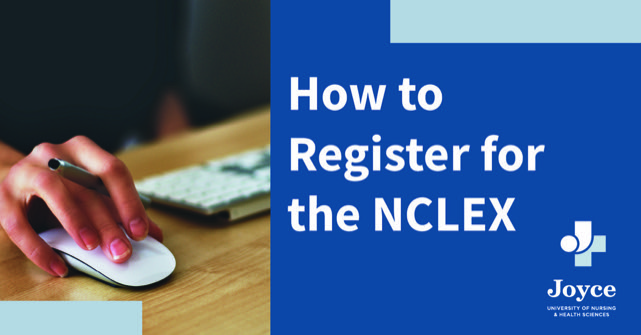NCLEX Study Plan for Passing the Licensure Exam
Staff WriterMay 3, 2022
Once nursing students finish their clinical rotations and courses and graduate from nursing school, one final hurdle looms between them and their first nursing job: the National Council Licensure Examination, commonly known as the NCLEX. If you graduated from a good nursing school, you’ve already learned the foundations and the specialized knowledge you’ll need to become an amazing nurse. Look at the exam as an opportunity to prove that to yourself and the official licensing body for nurses. With the right NCLEX study plan and test-taking strategies, you can go into the exam with the confidence that you’re ready to become a registered nurse.
1. Give yourself enough time to study
There isn’t a one-size-fits-all best time to take the NCLEX. Every nurse will have a different NCLEX success story. It’s a matter of finding the time that’s best for you. If your nursing program included a strong NCLEX review course, you might schedule your test just as you graduate. If yours didn’t, you might choose to take some extra weeks or months to study and review. Test registration is typically available starting six weeks before your program ends. Once you decide you’re ready to test, sign up and pay your exam and licensure fees — typically around $300.
Considering those costs, you should give yourself plenty of time to study to ensure you’re ready to pass the first time you take it. Rather than cramming all of your studying into an impossible timeframe, take care of your mind and body as you’re preparing. Find a comfortable study space where you actually enjoy learning and take frequent short and long breaks to keep your brain limber and to allow the information to soak in.
Of course, you still have to think like a nurse. You’ll still need to push yourself and tend to all the other spinning plates in your day-to-day life. Your NCLEX study plan shouldn’t be unpleasant or rushed, but everything about it should be challenging, including the timeline. Give yourself the study hours you need, but schedule the exam as soon as possible so you can pass and get to work as a nurse right away.
We highly recommend allocating a specific amount of time each day and itemize the topics you need to cover during each session. Every student studies differently, but many nursing forums contain posts by past exam-takers with schedules that worked for them.
Related Resource: 10 Tips for Creating Your Ideal Study Space
2. Know how the test is structured
If your program prepared you well for the NCLEX, skip over this part. If not, and the whole process seems rather murky, it’s important you know how the test is structured.
This outline from the National Council of State Boards of Nursing contains percentage ranges for each category on which you’ll be tested. As you read through the categories, it’s a good idea to determine which areas you believe to be your strengths, as well as the areas you’ll need to study especially thoroughly in preparation for the exam.
It’s also useful to know that the NCLEX is administered with computerized adaptive testing, or CAT. That means that you won’t be needing to sharpen any number-two pencils and should expect to take the test in front of a screen. Questions will be of four major types: drag-and-drop, multiple choice, hot spots, and chart/exhibit.
Another unique factor in the NCLEX is that the length of it depends on the test taker. Registered nurse candidates must answer at least 75 questions correctly, which is the shortest possible test length. However, incorrect answers lead to a longer test, with 265 being the highest possible number of questions contained within the exam. The NCLEX can take up to six hours, but the majority of test takers require less than the maximum time allocation.
If your test ends up being over 75 questions, remember to stay positive. A longer test doesn’t mean you failed, and anyway, it’s rare for anyone to reach that maximum number of questions. As long as you’re still in the running for a passing score, the computer will continue administering new questions until enough information is gathered to settle on a pass or fail. This system is helpful in that it helps test-takers focus on the questions in front of them one at a time — if the test is still going, it’s still possible to pass!
Related Resource: 8 Tips for Passing the NCLEX-RN Exam
3. Implement your NCLEX study plan
One of the best ways to ensure that you ace the NCLEX is to take a few practice tests in preparation. The Internet has plenty of reputable resources when it comes to study guides and example NCLEX test questions. Once you have a nice collection of resources both online and in print, consider crafting a routine for your study days with a good balance of practice tests, reading materials, and enough downtime between to give you the brainpower you need to absorb the most possible information. Some test candidates like to study in intense, short bursts while others prefer to make studying an interwoven part of their everyday routines.
Studying for the NCLEX with a group of friends can help ensure your exam successWhatever your NCLEX study plan may be, it can be wise to buddy up with a friend from your cohort who’s also preparing to take the exam. Although preparation is hard work, it can be rewarding — and even fun — to study with someone else. Even though you can’t take the test together, you’ll memorize more with two heads instead of one, and your individual strengths can help each other’s weaknesses.
Think of fun ways to study with a friend or group, like taking breaks to grab ice cream or planning to watch a favorite movie together after your study session. Building these sorts of rewards into your exam planning reinforces positive associations with the test material and keeps stress levels lower — which in turn means that information retention will go up.
Related Resource: Best Guides for Passing the NCLEX-RN
4. Consider an NCLEX prep course
Some graduates might need a little extra oomph when they begin studying apart from their nursing instructors. The structured delivery of an NCLEX prep course can be helpful to those who struggle setting aside time to study between other activities. If you’re someone who learns better in a structured environment, there are many options for prep courses both online and in classrooms. NCLEX prep courses do cost a significant amount of money, yet for many students, the price is worth it for the assurance that a structured learning environment can bring.
Prep courses also serve as a fantastic option for the students who didn’t take or schedule the test immediately after graduation. If you are newly graduated from your nursing program, much of the material covered in the NCLEX may still be fresh in your brain. However, a prep course will help you bring the knowledge to the forefront of your mind if it’s been awhile since graduation. With a structured prep course, you can save yourself the time you would have spent sorting out study materials and old notes. Prep courses aren’t for everyone, but they can benefit a lot of nursing students.
Related Resource: Normal Lab Values in Nursing
5. Give yourself a break the day before the test
As the big day approaches, give yourself a day away from NCLEX materials. At this point, you’ve put in the hard work and dedication needed to prepare yourself for this pivotal moment in your nursing career — so enjoy a relaxing break before you put your knowledge to the test.
A day of rest can relax you, preparing you to take the test calmly and thoughtfully, employing the knowledge you’ve already gained and recently reviewed. Cramming the night before will more likely result in a frantic and muddled mind. The material is in there, so a break is well deserved. Make sure to get plenty of sleep and eat a healthy, well-balanced diet leading up to the test time.
6. Only bring essentials with you to the test
On the day of the exam, you’ll only need to be confident and do your best. Your goal should be to minimize distractions of any sort so you can focus on the exam itself. Plan to show up to the testing site in loose, comfortable layers, so you aren’t distracted by too-tight sleeves or itchy fabrics. Layering also means you won’t be bothered by fluctuations in temperature — you can simply make adjustments mid-test.
To help stay calm and relaxed in the moments leading up to the test, try to arrive about a half-hour early to the testing location. Don’t arrive too hungry or too full, and make sure to stay well-hydrated so your brain can perform at its peak. Last but not least: Remember to breathe and feel proud of all of your accomplishments thus far. You’ve worked hard to be here, and taking the NCLEX is your time to shine and show how much you know!
Related Resource: 5 NCLEX Test Taking Strategies
7. Know where to get the results.
Once you’ve taken your exam, any amount of time to find out the results can feel like a long time. Luckily there is more than one option for receiving your NCLEX results.
Normally, results are mailed to you approximately six weeks after the exam day. If that seems like too long to wait, some approved services are available for a fee that will reveal your results to you within 48 hours. If for any reason the exam is unsuccessful, you can take it again in 45 days. But if you’ve prepared well and followed through with a concerted study regimen, chances are you did better than you imagine. When you get your results, whatever they may be, make sure to congratulate yourself on the effort and commitment you made to arrive at such a major milestone.
Explore Your Nursing Education Options at Joyce University
Whether you’re beginning your healthcare journey with our ASN program, pursuing a traditional BSN degree or accelerated BSN program, advancing through our RN to BSN program, or reaching higher with an MSN degree, discover which nursing pathway aligns with your career goals by exploring our nursing school.
Nursing
Learn MoreAdmissions
Learn MoreApply Now
Request Info




